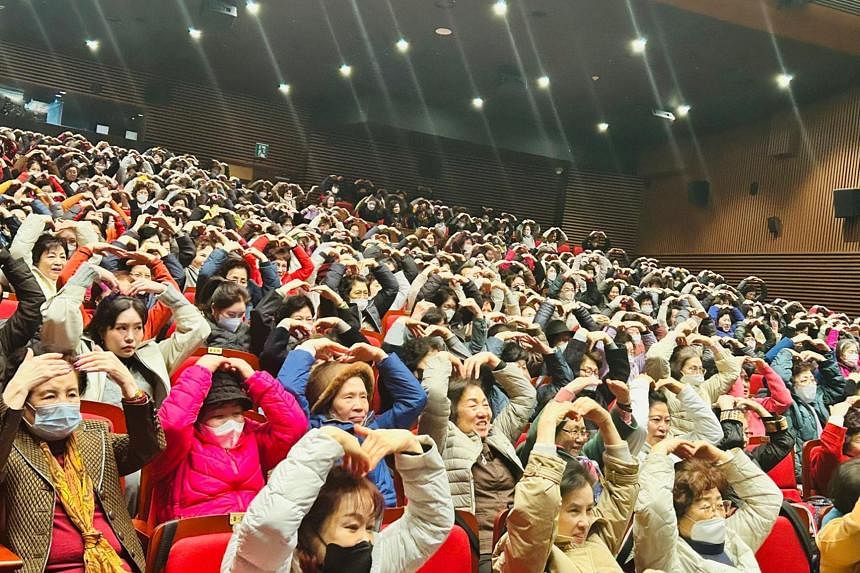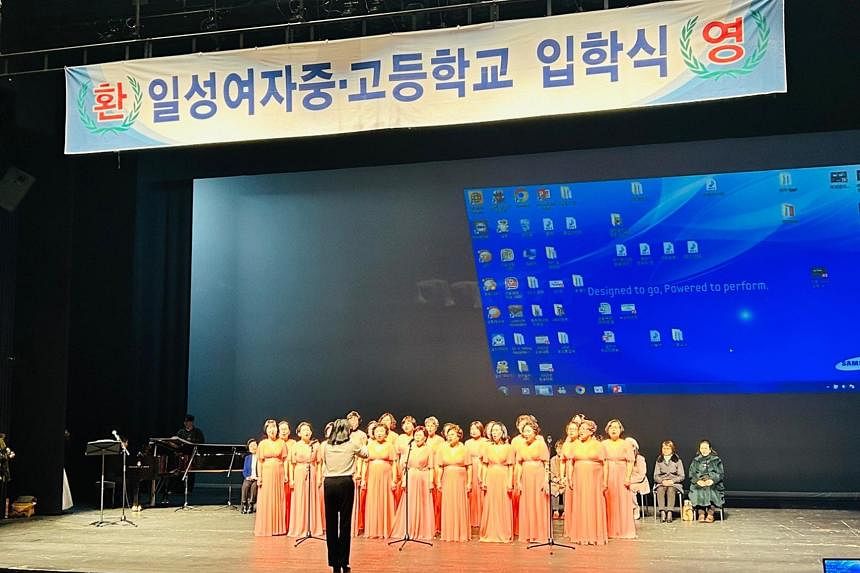SEOUL – Before classes begin, the corridors of Ilsung Women’s Middle and High School are filled with the sounds of cheerful chatter and lively greetings.
Inside the classrooms, heads are bowed in concentration, and hands are busy copying notes off the blackboard.
This is a scenario not out of place in a normal school, but what stands out are the telltale heads of silver hair and tight curls – characteristics associated with South Korean middle-aged aunties and grannies.
At Ilsung Women’s Middle and High School, almost 90 per cent of the students are in their 70s and 80s.
Unlike other middle and high schools in South Korea which cater to students aged 12 to 18, Ilsung is only for women aged 40 and above who did not manage to receive or complete their education when they were younger.
According to the Seoul Metropolitan Office of Education (SMOE), there are nine of such schools catering to mature students in Seoul, with a total of 42 nationwide.
There are no school fees for such students, which number more than 6,600 across the country on average per year.
The SMOE’s budget of 15.9 billion won (S$15.9 million) for 2024 is targeted at providing lifelong education, literacy education and qualification exams to the educationally underprivileged.
South Korea is among the world’s fastest ageing societies, with 19 per cent of its population aged 65 and above as at 2023.
The United Nations defines a country as “super-aged” when more than 20 per cent of its population is aged above 65.
A survey by Statistics Korea in October 2023 showed that 60 per cent of those aged between 55 and 79 in Korea are currently working, which is also encouraged by the government as the country faces a labour crunch from a declining population.
Ruddy-cheeked 75-year-old student Beom Shin-hee was huffing and puffing on her daily steep uphill climb to the school.
She wakes up at 6.30am and pulls a shift cleaning a kindergarten near her home in Itaewon before heading to school, a 30-minute journey away by public transport before a 10-minute uphill climb to the school.
She told ST: “The walk is a bit tough, but I see it as exercise. I feel good learning new things, especially when I can read the signs at the subway stations!”
Family obligations before books
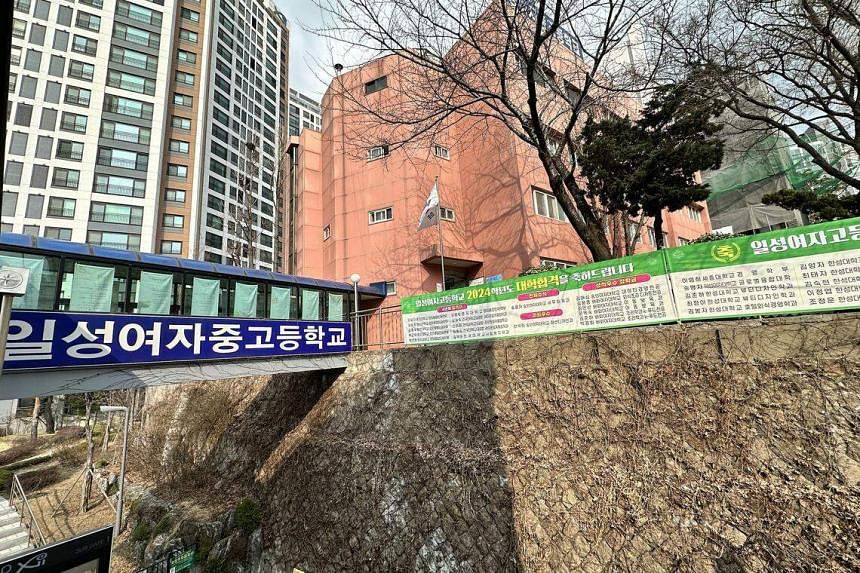
Established in 1952, Ilsung school is the first mature learning institution in South Korea, and made headlines in 2023 when one of its students – 83-year-old Madam Kim Jeong-ja – became the oldest candidate to sit the Korean college entrance exam in 2023.
Madam Kim was among the 230 Ilsung students who graduated in February 2024 before going on to study social welfare at Sookmyung Women’s University, where her own granddaughter had graduated from.
Currently, the school’s oldest student is 87 – second-year middle school student Kim Gab-neo, who has four daughters and nine adult grandchildren.
She was born in 1937, when Korea was still under the Japanese occupation, as the eldest daughter of a poor farming family in Chungcheongbuk province.
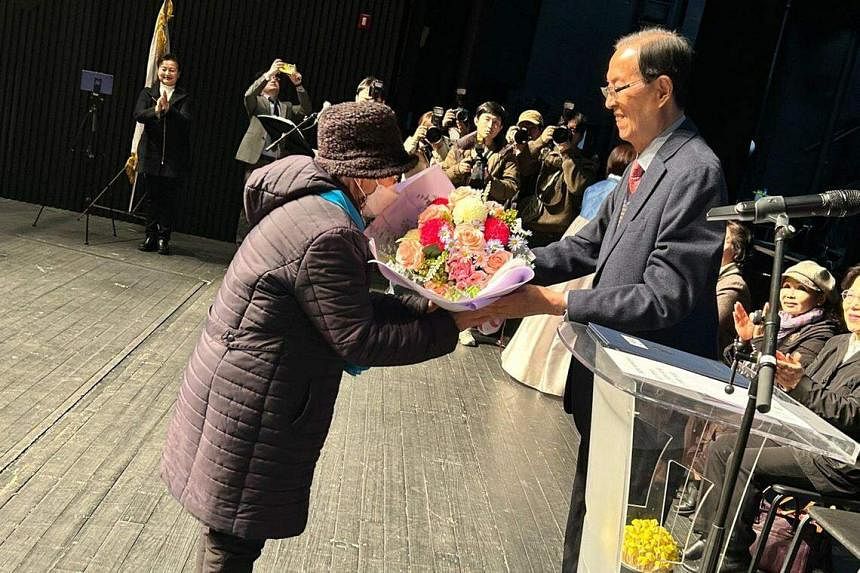
Madam Kim never had the chance to go to school, and her parents were too afraid to teach her the Korean alphabet at home. Under Japanese rule, Koreans were only allowed to teach, write and speak Japanese.
“When we were finally liberated from Japanese rule in 1945, I was eight years old and I tried following the other children to school. I told my parents that I need to at least learn to write my name in Hangul, but they refused to let me go. They said I should help with farm work and take care of my younger brothers instead. I cried so hard then, like a baby,” she told The Straits Times.
Madam Kim’s father died when she was 16, leaving her mother and her to raise her two younger brothers, who went to school but did not do well.
She put her own youth on hold and only got married at 30, an age considered old for marriage at the time.
Her husband was sickly and died 17 years into the marriage, leaving her to raise their four daughters by selling shoes.
“I had to focus only on moving forward because I had to raise them all. While my aim was to marry my daughters off to good husbands, I also wanted them to receive an education first because I have always regretted not being able to learn myself.”
After decades of putting her family before herself, Madam Kim finally heard about an elementary school for women like herself, and enrolled when she was in her 70s.
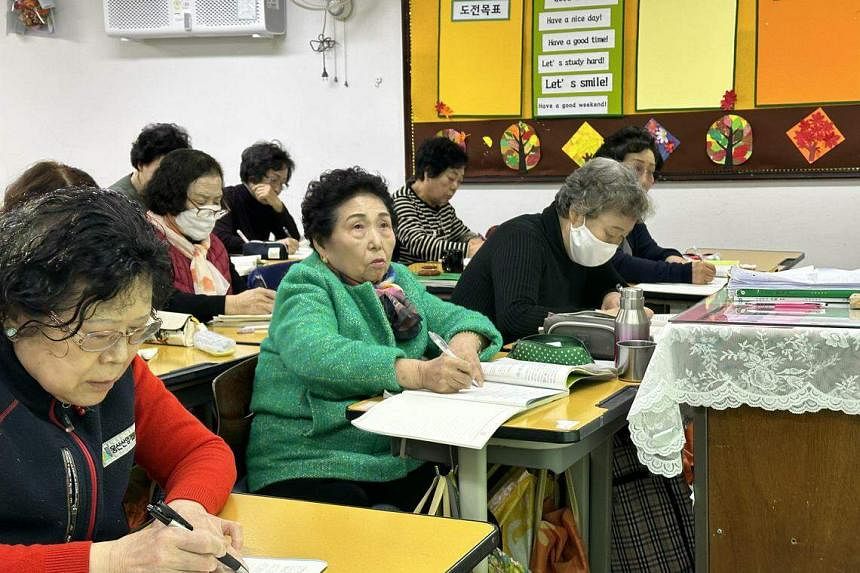
She had to take some years off in between to care for a daughter who had cancer, and then most recently for back pain, but she re-enrolled in March 2024, determined to continue her studies.
“When I first entered elementary school those years ago, I felt like I had everything in the world,” the sprightly octogenarian said with a smile.
Like her, her classmates, Madam Han Yu-hyeon, 77, and Madam Seo Seon-Ja, 76, relish the chance to make good friends in school, something they missed out on in their youth.
The pair were happily chatting during a class break, not unlike schoolgirls a fraction of their age.
Madam Han, whose commute to school is one hour each way, told ST: “It’s too hard for us at our age to have to transfer trains and take the long commute here. But school is so interesting! The best thing is that I get to learn Korean and English. It may seem like something very ordinary, but when I am able to read things that I couldn’t before, I feel so happy!”
Maturity matters
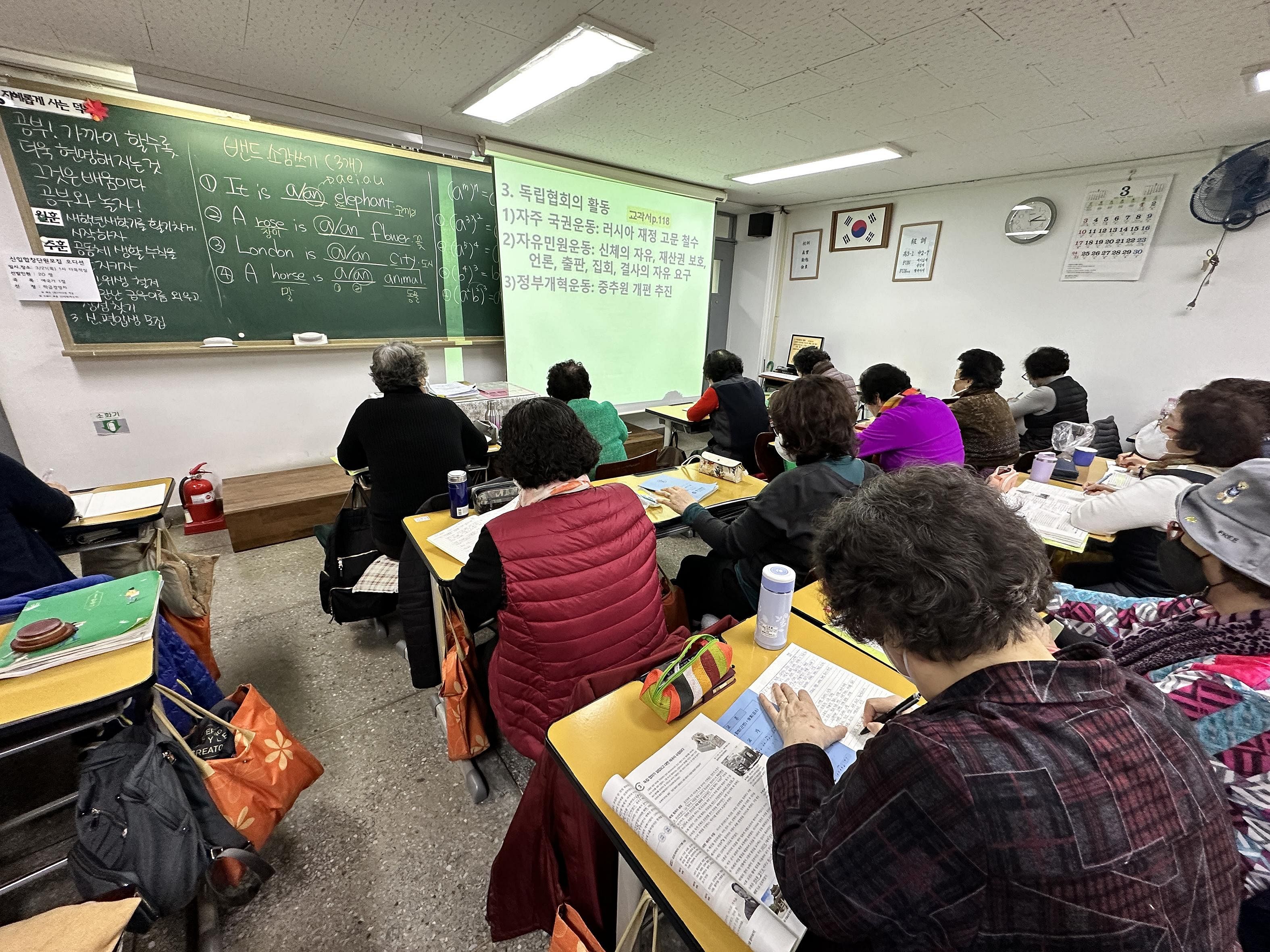
Korean history teacher Kang Nae-gyeong has been with the school for 15 years.
She told ST that the school follows the same curriculum as normal schools and conducts exams as well.
Madam Kang, who used to teach in a normal high school before switching to Ilsung school, said that her elderly students tend to do better in subjects such as Korean language and Korean history, given their life experience. English and mathematics, on the other hand, pose a bigger challenge to these mature students.
“They have such a good learning attitude. They don’t fall asleep in class, they don’t fight with one another like children do. Even as I teach them, I feel like they are teaching me as well – the importance of constantly challenging oneself.”
She is especially touched when the grannies leave her handwritten notes of appreciation.
“The spelling is often wrong and the letters are crooked. But what moves me is the sincerity that they are trying to convey within the letters.”
While most of the students are retirees, a small proportion are pursuing education to improve their chances at employment, said Madam Kang.
A congratulatory banner hung outside the school shows that most of Ilsung’s granny graduates go on to study social welfare or culinary arts, with some taking up business consulting and property management.
Of course, with elderly students, there is the reality of medical emergencies. Teachers at Ilsung school are trained in cardiopulmonary resuscitation and given annual refreshers on life-saving skills.
Students undergo annual health screening at the school, according to vice-principal Kim Sang-hyeon.
The school also encourages their elderly wards to do light stretching exercises in between classes as some of them complain of back pain from sitting for too long.
“Because they are such special students, we want them to study happily and healthily,” he said.
The school has seen some 60,000 students pass through its gates since 1952, and wants to help as many of them as possible to go on to university.
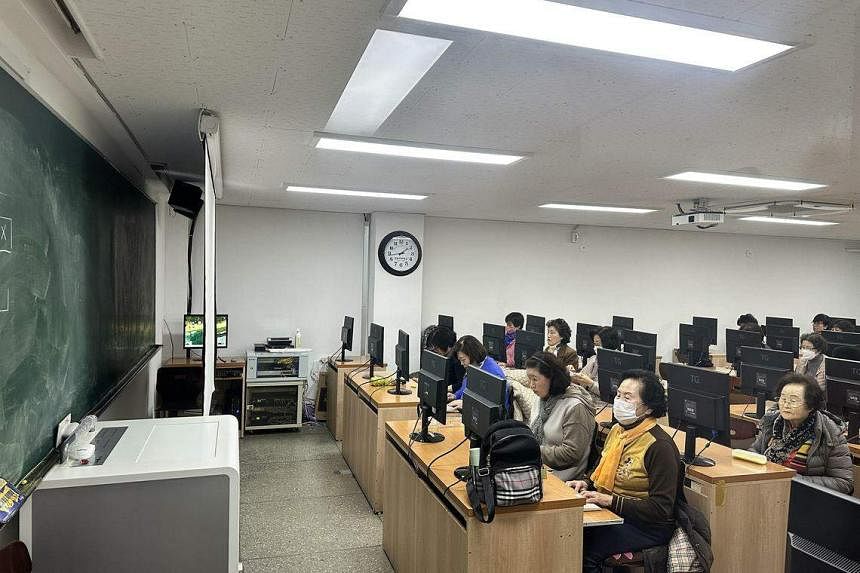
The school marks in 2024 the 18th year in a row that 100 per cent of its high school leavers qualify for university.
When asked if it is her goal to make it to university, Madam Kim paused before replying: “By the time I make it to university, I will be in my 90s. I don’t know what to study in university either. I never had any ambitions when I was young, but none of us had at that time, when life was already so hard.
“I don’t know what the future will bring, but I’m happy for now that at least I can read and write!”
